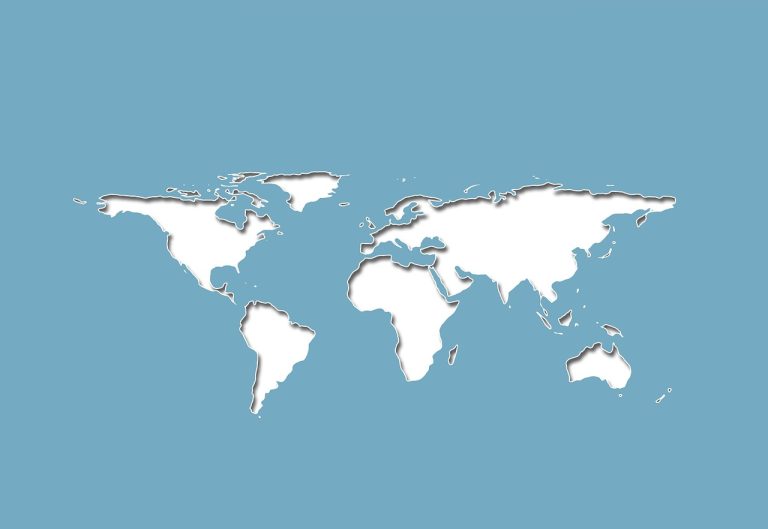
Fact-checking the Latest Statements from Filipino Politicians: A Comprehensive Review
In recent years, the political landscape in the Philippines has grown increasingly complex, with public statements from politicians frequently sparking debate and discussion. As the nation navigates through important policy decisions, the accuracy of these statements becomes crucial. This post aims to provide a detailed examination of the latest political claims in the Philippines, separating fact from fiction, and exploring the implications for the Filipino public.
The Importance of Fact-checking in Politics
Fact-checking has become an essential part of political discourse. In an era where misinformation can spread rapidly through social media and other channels, the need for accurate information is more critical than ever. Fact-checking not only holds politicians accountable but also empowers citizens by providing them with the tools to make informed decisions.
Organizations such as Rappler and Vera Files have made significant strides in promoting transparency and accountability in the Philippines. Their efforts highlight the role of journalism in maintaining the integrity of democratic processes.
Recent Statements Under Scrutiny
Several recent statements from Filipino politicians have been subjected to fact-checking, each with varying degrees of accuracy. Below, we delve into some of the most notable claims and assess their validity.
Economic Growth Projections
A prominent claim by a senior government official stated that the Philippine economy is on track to achieve a growth rate of 7% by the end of the year. However, an analysis by the Asian Development Bank suggests a more conservative estimate of around 5.5%, considering global economic challenges and domestic factors.
This discrepancy highlights the importance of context when interpreting economic forecasts. While optimistic projections can inspire confidence, they must be tempered with realistic assessments to ensure public expectations are managed effectively.

Infrastructure Development Claims
Infrastructure development has been a focal point of the current administration, with claims of completing several major projects ahead of schedule. A closer examination reveals that while progress has been made, some projects have experienced delays due to unforeseen circumstances such as land acquisition issues and pandemic-related disruptions.
Reports from the Department of Public Works and Highways provide detailed updates on project timelines and challenges, offering a more nuanced understanding of the situation.
Health and Social Welfare Statements
Health and social welfare have been at the forefront of political discussions, especially in light of the ongoing pandemic. Politicians have made various claims about healthcare improvements and support programs for vulnerable populations. While some initiatives have been successfully implemented, others have faced obstacles.
Healthcare System Resilience
A recent statement claimed that the Philippine healthcare system is fully equipped to handle any surge in COVID-19 cases. However, data from the Department of Health indicates that while there have been improvements in capacity, challenges remain in terms of resource allocation and workforce availability. Continuous investment and strategic planning are required to enhance system resilience.
Social Welfare Programs
The expansion of social welfare programs has been a key promise of the government, aiming to provide financial assistance to those most affected by economic downturns. While some progress has been made, reports suggest that bureaucratic hurdles and limited funding have slowed the rollout of these programs.
It is crucial for the government to address these issues to ensure that aid reaches those in need promptly and efficiently.
The Role of Media and Public Engagement

Media plays a pivotal role in fact-checking political statements and informing the public. However, the responsibility does not rest solely on journalists. Citizens must also engage critically with information, questioning and verifying claims as active participants in the democratic process.
Educational initiatives that promote media literacy can empower individuals to navigate the complex information landscape effectively. Encouraging public dialogue and fostering an environment where diverse perspectives can be shared and debated is equally important.
Conclusion: Towards Greater Accountability
As the Philippines continues to face significant challenges, the need for honesty and transparency in political communication cannot be overstated. Fact-checking serves as a vital tool in promoting accountability and ensuring that the public receives accurate and reliable information.
By supporting organizations dedicated to truth and fostering a culture of critical engagement, Filipinos can contribute to a more informed and empowered society. As the nation moves forward, it is imperative that both leaders and citizens commit to upholding the values of integrity and trust.
Empowering Citizens Through Education and Awareness
An informed citizenry is the cornerstone of a thriving democracy. Education systems and public campaigns should prioritize critical thinking and media literacy to enable individuals to discern verified information from misleading claims. Schools and universities can integrate modules that focus on evaluating sources, understanding biases, and fact-checking techniques.
Additionally, community workshops and partnerships with media organizations can provide valuable resources and training for people of all ages. By fostering a culture of inquiry and skepticism, citizens are better equipped to hold their leaders accountable and make decisions that reflect their best interests.
Technological Tools and Innovations in Fact-checking
Advances in technology have opened new avenues for fact-checking and combating misinformation. Artificial intelligence and machine learning algorithms can analyze vast amounts of data quickly, identifying patterns and inconsistencies in political statements. These tools can augment the capabilities of human fact-checkers, allowing for more comprehensive and timely analyses.

Innovations such as browser extensions and mobile applications can provide real-time fact-checking services, alerting users to potential inaccuracies as they consume content online. Collaborative platforms that allow users to report and verify claims collectively can harness the power of community engagement to enhance the accuracy of information dissemination.
Challenges and Limitations in Fact-checking
Despite the progress made in fact-checking, several challenges remain. One significant issue is the volume of information that needs verification, often exceeding the capacity of existing fact-checking organizations. This can lead to delays and gaps in coverage, particularly in regions with limited resources.
Moreover, the subjective nature of certain political statements can complicate the fact-checking process. Statements that involve predictions or opinions may not be easily categorized as true or false, requiring nuanced analysis and interpretation.
The potential for political bias in fact-checking efforts is another concern. To maintain credibility, organizations must adhere to strict standards of impartiality and transparency in their methodologies. This involves disclosing sources, providing detailed explanations of reasoning, and being open to corrections and feedback.
The Future of Political Accountability in the Philippines
As the Philippines continues to evolve in its democratic journey, the role of fact-checking in political accountability will remain indispensable. Strengthening institutions that support transparency and fostering a culture of integrity among public officials are crucial steps towards a more accountable governance structure.
Public support for fact-checking initiatives can drive further innovation and expansion of services, ensuring that they remain agile and responsive to emerging challenges. Collaborative efforts between government, civil society, and the private sector can create a robust ecosystem that promotes truth and accountability.
Conclusion: A Call to Action

The journey towards greater political accountability in the Philippines is ongoing, with fact-checking serving as a vital component. By leveraging education, technology, and community engagement, Filipinos can build a society where truth thrives, and leaders are held to the highest standards of honesty.
As citizens, engaging actively in the political process and demanding transparency from elected officials is crucial. Together, through collective effort and vigilance, the nation can overcome challenges and forge a path towards a more just and equitable future.
Encouraging a Culture of Accountability Among Politicians
Beyond fact-checking, fostering a culture of accountability among politicians themselves is essential. This can be achieved through the establishment of clear ethical guidelines and the enforcement of stringent consequences for those found to be deliberately misleading the public. By instituting these measures, the political landscape can shift towards greater transparency and trustworthiness.
Political parties play a significant role in this transformation. By prioritizing integrity and accountability in their platforms and candidate selection processes, parties can set a precedent for behavior that aligns with the public’s best interests. Encouraging open dialogue and debate within party structures can also promote a more transparent decision-making process.
The Role of International Cooperation and Support
International cooperation can provide valuable support to domestic fact-checking efforts. Global fact-checking networks and partnerships offer resources, expertise, and funding that can enhance the capacity of local organizations. Collaborations with international bodies can also bring attention to the importance of truth in governance, encouraging countries worldwide to adopt similar practices.
Organizations such as the International Fact-Checking Network facilitate cross-border initiatives and foster a sense of solidarity among fact-checkers globally. These partnerships can lead to the development of best practices and shared strategies for tackling misinformation effectively.

Investing in Long-term Solutions
While immediate actions are necessary to address current challenges, investing in long-term solutions is equally important. This involves building institutional frameworks that support ongoing fact-checking and transparency initiatives. Governments can allocate resources towards establishing independent bodies dedicated to monitoring and verifying political statements.
Additionally, fostering a new generation of journalists and media professionals committed to ethical reporting and fact-checking can sustain efforts in the long run. Scholarships, training programs, and internships focused on investigative journalism can nurture talent and ensure a steady flow of skilled individuals into the media industry.
Empowering Communities to Demand Transparency
Ultimately, the power to demand transparency and accountability lies with the people. Community-driven initiatives can amplify the voices of citizens, advocating for policies that prioritize honesty and integrity in governance. Grassroots movements, civic organizations, and online platforms can mobilize support and influence political agendas.
By creating spaces where individuals can share their experiences and concerns, communities can collectively push for reforms that align with their values and aspirations. Engaging in constructive dialogue with policymakers and leveraging social media to raise awareness are powerful tools in this endeavor.
Conclusion: Building a Future Rooted in Truth
The journey towards a future rooted in truth and accountability is a collective endeavor that requires continuous effort and commitment from all sectors of society. By embracing the principles of transparency, integrity, and responsibility, the Philippines can pave the way for a more equitable and prosperous nation.
As citizens, journalists, politicians, and institutions unite in their pursuit of truth, the potential for positive change becomes limitless. Through education, innovation, and collaboration, the vision of a transparent and accountable political landscape is within reach, offering hope and opportunity for generations to come.






